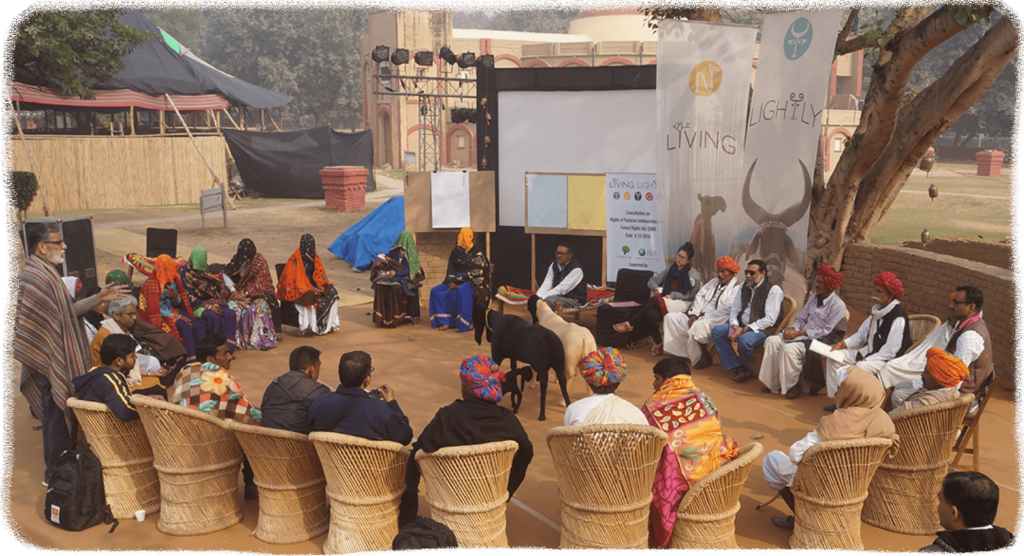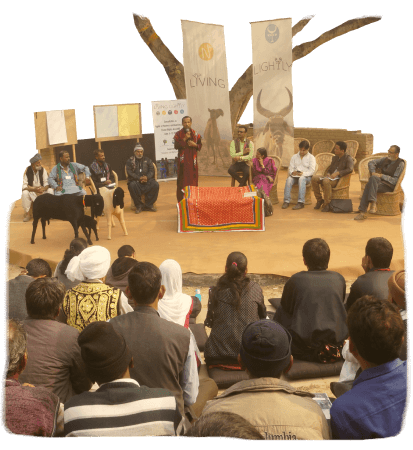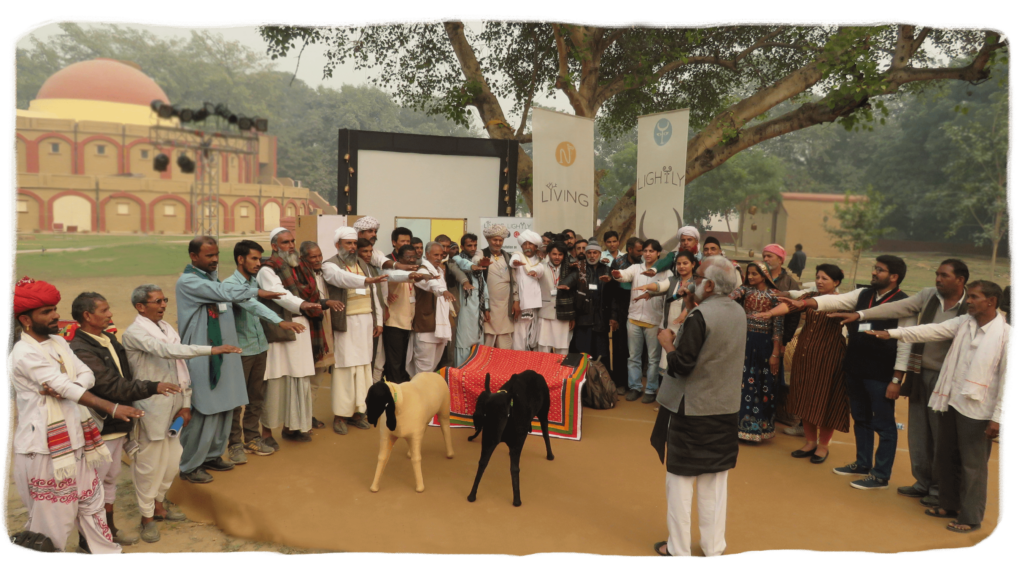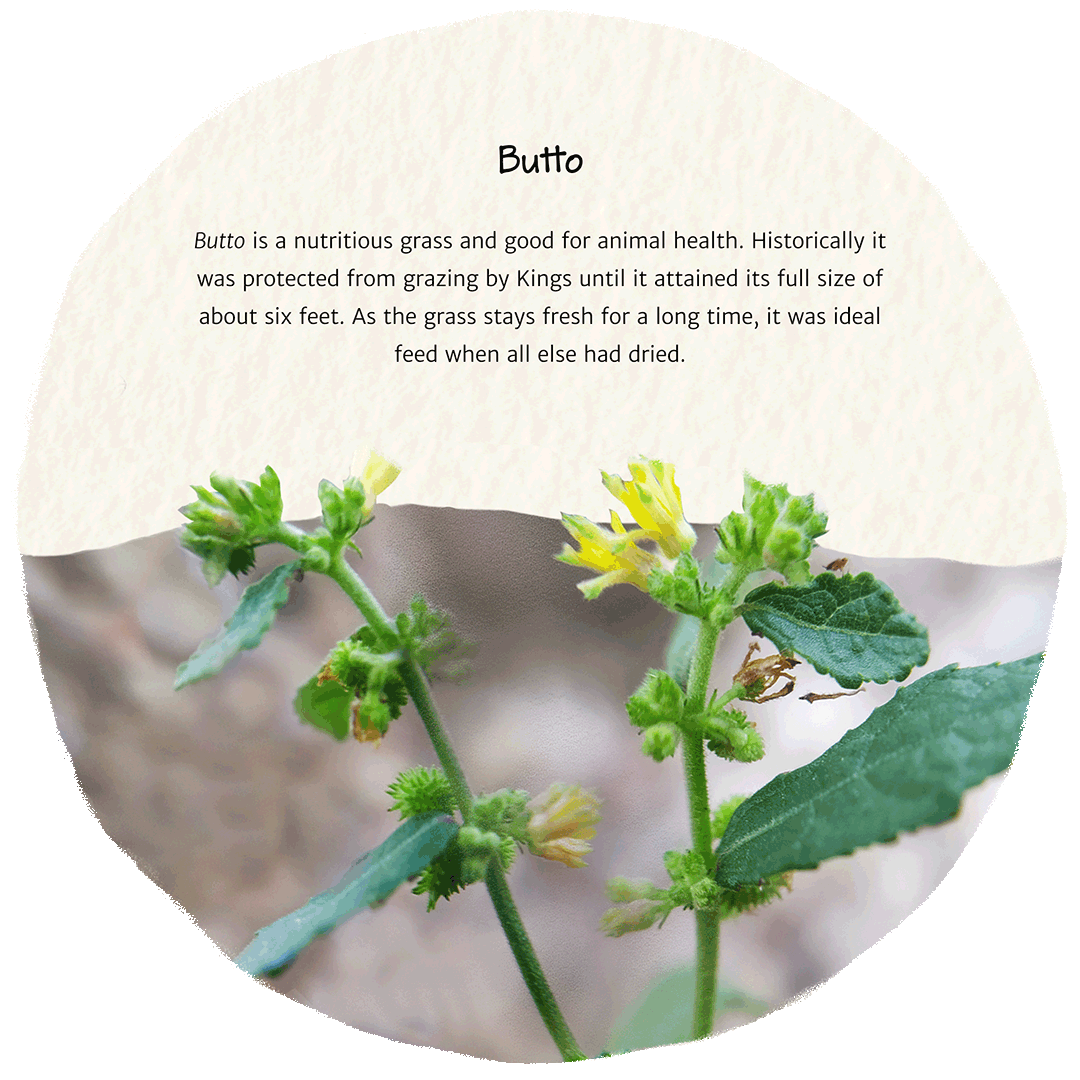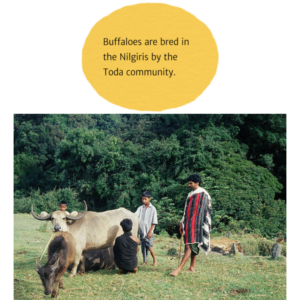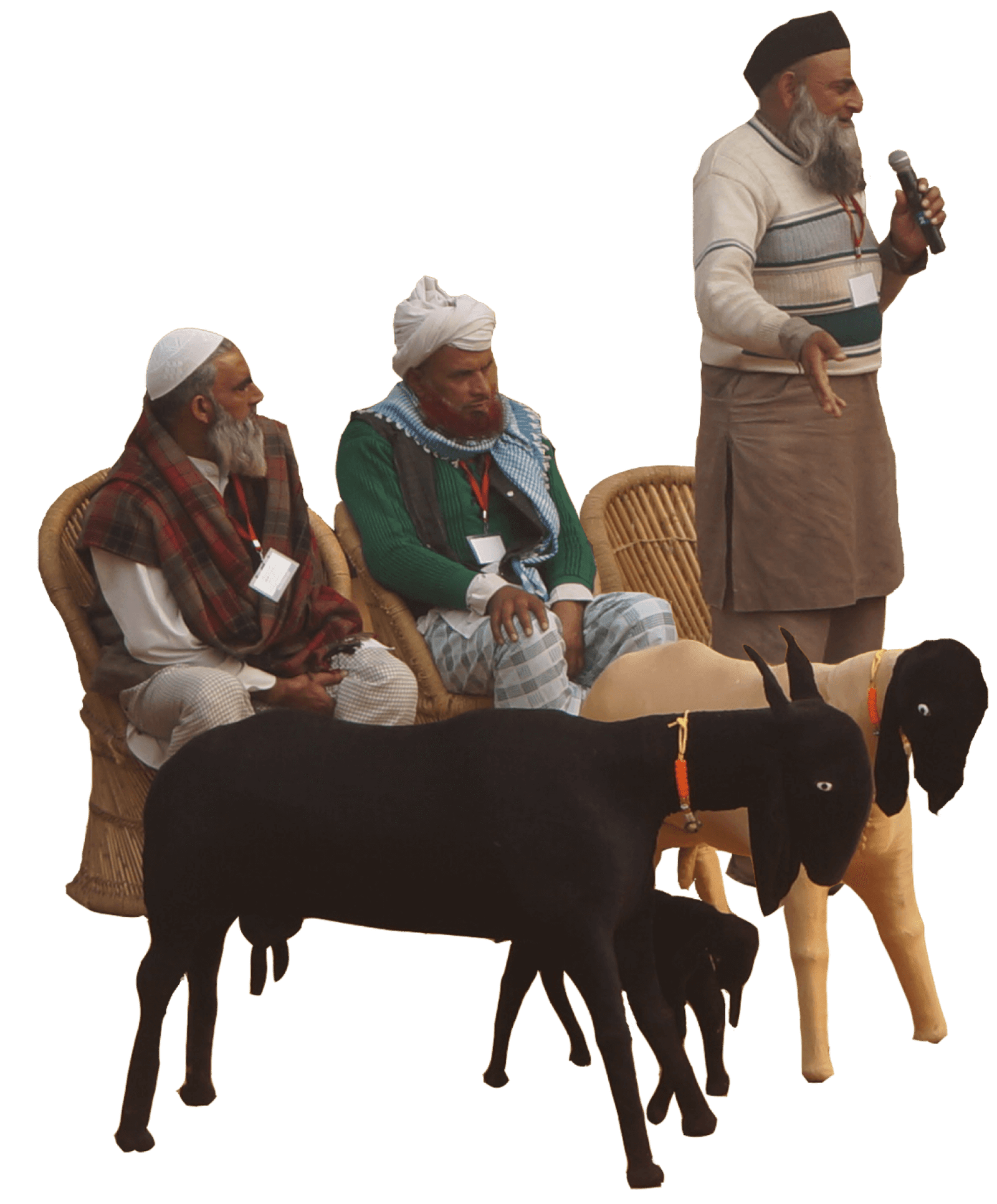
“We Van Gujjaras are buffalo breeders. We migrate into the alpines during the summers and return to the lower Himalayas crossing the Rajaji National Park. We have done this for centuries, ever since they migrated from Kashmir with their animals. In 2009 the Forest Department permanently stopped us from crossing the National Park, seriously compromising our security, profession and lifestyle.”
A Van Gujjar elder speaks at a consultation
